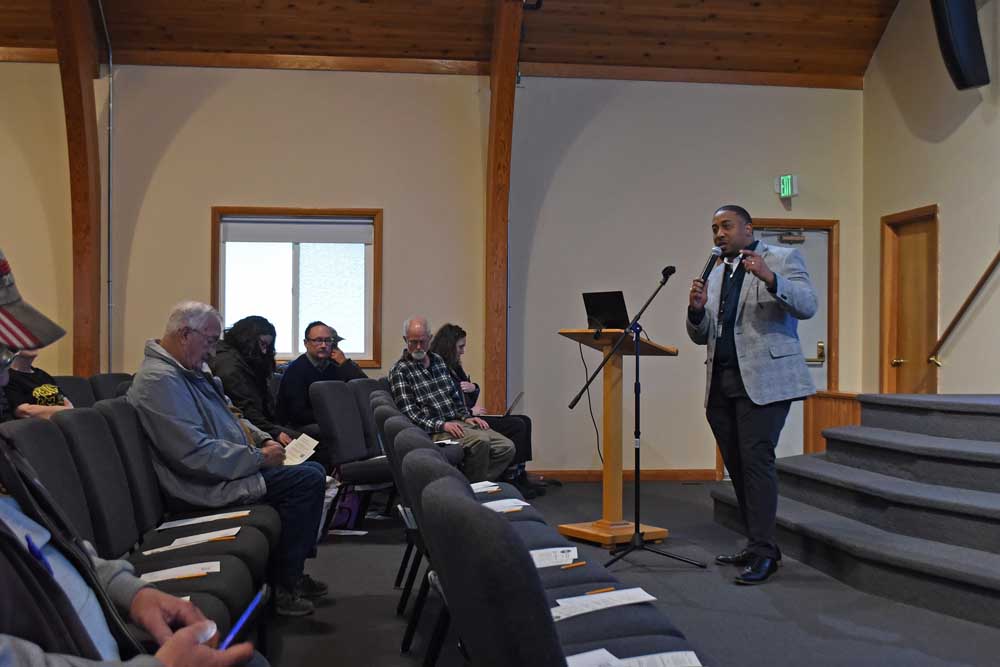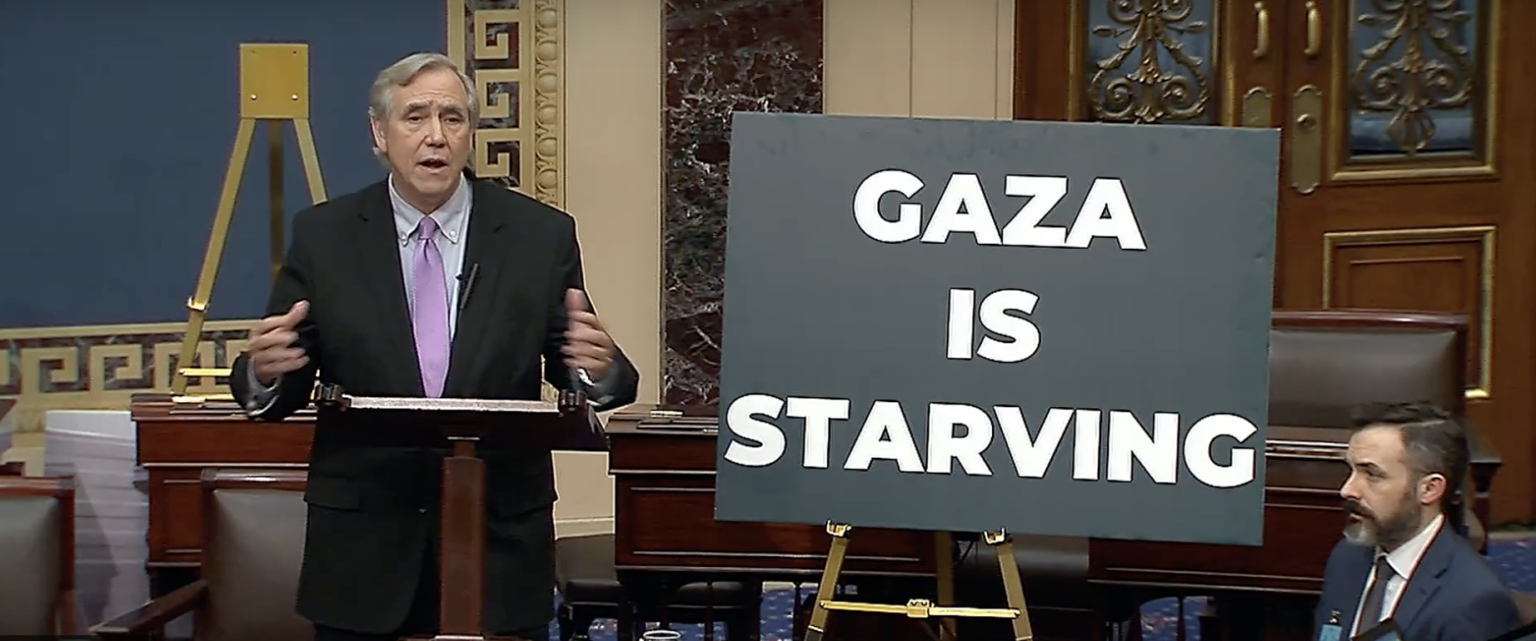Boring neighbors continue to seek answers, representation as they await LUBA remand hearing
Published 5:00 am Monday, March 31, 2025

- Multnomah County Commissioner Vince Jones-Dixon.
For the past seven years, a vocal group of neighbors of the proposed Portland Water Bureau filtration plant in Boring have expressed sharp opposition. Key among their arguments is a notable lack of representation for the rural residents who cannot vote in Portland elections and, therefore, have little voice in the city’s decisions.
Trending
After being sworn in as Multnomah County Commissioner for District 4, which represents East County, Vince Jones-Dixon began to hear more of the story around this conflict that has been ongoing since long before the Water Bureau broke ground on the Carpenter Lane site in June 2024.
Jones-Dixon had only heard bits and pieces about the Water Bureau’s project in his time serving on Gresham City Council, enough to vote in favor of the city of Gresham pulling out of its wholesale agreement with Portland.
“As I mentioned at the town hall, we (Gresham City Council) decided to pull out as a wholesale customer for our water supply mainly due to the rates the Portland Water was going to charge us. It was just too expensive,” he explained at a town hall with the Cottrell CPO on March 10. “I had no idea the magnitude of the construction plans associated with the water filtration facility and I think that speaks to the level of communication to the impacted communities.”
Trending
A town hall with Boring and Pleasant Home-area residents on March 10 was a result of Jones-Dixon receiving emails with questions and concerns from many in the community after taking office in January.
Some questioned how the commissioner had so little information on the project and the conflict surrounding it before, but he assured them that now that he’s on the county board of commissioners, and has been made aware of the situation, he’s committed to getting answers for his constituents.
“Anytime a community is feeling unheard by those that represent them and that the system is failing them, I’m there,” he told The Post after the event. “This is the core reason I pursued public office.”
However, Jones-Dixon also has a responsibility to remain impartial on the issue as much as possible.
“I will adhere to my responsibility as county commissioner and the quasi-judicial role I may play,” he explained. “That said, I have another responsibility to represent this community and their interests, which I will do with vigor. For now that means getting the answers to the questions they have and making sure the information they request is provided expediently. I plan on having continued engagement with these neighbors, listening and responding to their concerns.”
Prior to Jones-Dixon’s involvement, most of the community’s representation consisted of neighbors willing to take on the work in a volunteer capacity, as well as support from some board members of the Multnomah Rural Fire Protection District No. 10.
Charlie Ciecko of the Multnomah Fire District board attended the townhall and spoke on developments in the battle between the CPO and the water bureau, and his concerns about trucks used for plant construction damaging local roads and subsequently, fire apparatus that have to drive through the area.
While Ciecko’s fellow board member, Mike McKeel, has had some luck with communicating issues to the Bureau and local government, Ciecko said: “This is not the way that you run an open, inclusive and transparent process, and we need to have a change in the way we are responded to by the county.”
Members of the Cottrell CPO, who have led the opposition of the filtration plant project, expressed that they are “very encouraged by the Commissioner’s (Jones-Dixon’s) willingness to engage and answer questions” on March 10.
“That said, we also recognize that he has many other issues to deal with so for now all we can say is we remain hopeful that the commissioner will follow through,” CPO Secretary Lauren Courter said on March 14. “We have hope that Commissioner Jones-Dixon will be an advocate for us at the county, causing staff to be more forthcoming with information about the upcoming remand process. It has been two weeks since the remand clock has started and we have received zero communication about what the scope, timeline or process of the remand will entail, making it impossible to prepare for a most likely complicated legal proceeding. Also, our emails and phone calls have received very little reply.”
The water bureau and opposition of the $2.1 billion filtration plant await further news after approval of the Bureau’s land-use permit was rejected for not considering the impact on the area’s natural resources.
In January, the state Land Use Board of Appeals remanded approval of the conditional land-use permit to Multnomah County, which approved it in 2023. The 130-page ruling upheld most of the water bureau’s application, but said county officials had not adequately considered the 90-acre plant’s impact on natural resources to the area south of Oxbow Regional Park. Construction started in 2024.
“Out of nearly 300 pages of arguments made by project opponents, LUBA only remanded (sent back to Multnomah County) one County permit item related to the legal interpretation of the term “natural resources” in County code,” PWB representatives told The Post. “The legal interpretation that the County had used in the prior decision is the same one the County has been using for as long as anyone can remember, but it will now need to be reconsidered in the remand process.”
Because no appeal of this decision was filed within the 21-day window following, the Bureau has had to halt construction temporarily on the filtration and pipelines project throughout the remand period.
During this time, the county has been tasked with further defining “natural resources” and then applying that to the proposed project and land use needs at hand, deciding if it meets the natural resources approval criterion.
“LUBA did not reach any questions related to the application of that natural resources approval criterion to the project itself – the ruling is based on a legal interpretation of the words ‘natural resources’ in County code, and not the application of those words in this case,” PWB representatives said. “The city’s initial permit application for the filtration project included extensive studies and reports as well as protections and mitigations for natural resources. We will continue to ensure our project meets all applicable permit conditions.”
“This pause in construction creates real costs,” they added. “It costs construction jobs. It creates risk in the City’s timeline to meet our agreement with the Oregon Health Authority to protect public health. And the pause creates costs for the hundreds of thousands in the region who will depend on this filtration facility for clean drinking water. We continue to work toward fulfilling our public health obligations to the Portland region despite this potential setback, by continuing to move forward with necessary paperwork and planning to quickly start construction upon county approval.”
For the duration of the remand period, the opposition has said they will continue to keep an eye on the site and the project. Members of the community claimed at the March 10 townhall that there was still construction taking place at Carpenter Lane.
When asked about what on-site work has been stopped and what continues at this time, the Bureau told The Post on March 13: “We are coordinating with the county on wind-down and ongoing activities to ensure construction sites remain safe during the remand process.”
“Contractors are demobilizing equipment, completing earthwork activities to shape, slope, and stabilize stockpiles and excavations, adding bracing to tunnels, and adding concrete to secure shoring in trenches on the site,” they added. “We will also be filling potholes and completing road repairs within the identified project area. Throughout the remand, the Water Bureau will continue to maintain security, erosion control, and other applicable permit conditions to protect public safety.”
Aside from monitoring the Bureau’s movements on site, the community opposition said their main task is: “to seek out information from the county on the remand process and next steps.”
“The county has been working with the Portland Water Bureau on the remand, but no communication has been made to the community,” Courter explained in an email. “No notice was given to us when PWB indicated when they wanted to proceed with the remand on February 25. We have asked the county on many occasions for further information, but there has been no response and we have been kept in the dark. We were forced to do a public records request on (March 3) to get this information. We were told two days ago (March 12) that it would take over a month and cost the community over $2,000 for the county to complete the request. This does not give us enough time to prepare for the upcoming hearing. We have requested by email and in-person that Commissioner Jones-Dixon intercede and help us. It has been an unfair fight and the county continues to be unfair with continued favor for the city.”
According to the Multnomah County website, a remand hearing date has been set for 9 a.m. Wednesday, April 16, at the East County Health Center, 600 N.E. 8th St., Gresham.
For more information on that hearing, visit tinyurl.com/4rcdkz78.







